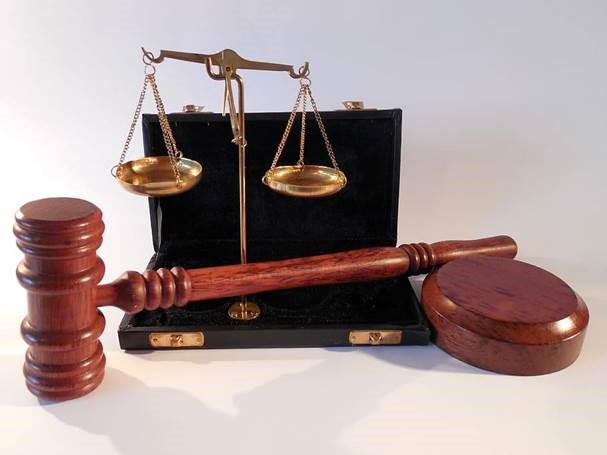
Ethical Issues in Charging Considerations (On-Demand)
-
Register
- Prices available after logging in

On-Demand Webinar: Ethical Issues in Charging Considerations
60-minute presentation
You are working DA intake when an officer calls you with a whale of a case. What should be a part of your analysis of whether to charge the case and if so what charge? Are there co-defendants? Other parties to the criminal behavior? Do you have evidence to support proving your case beyond a reasonable doubt? Do you need this level of evidence/ analysis? What happens after you complete your analysis of the case? Do you charge the main offense and lesser included offenses? What does it mean to “Overcharge”? Our seasoned faculty member will discuss these issues as well as the public pressure when your case is a high-profile case. Other issues that will be discussed include improper charging, leverage – when is this appropriate, police/ public pressure, the impact of the media, and liability issues. Come prepared with questions about our current challenges. Participation is encouraged!
This program qualifies for 1.00 hour of legal ethics credit.
Cost:
Members: $50.00
Non-Members: $55.00
If you would like to become a member, please join here!
Eligibility
NDAA’s mission to serve and support prosecutors and their staff. In consideration of this commitment, NDAA requires that all those in attendance of our programs currently work in or work closely with prosecution: NDAA invites prosecutors, lawyers and paralegals in local, state, tribal, federal and military government attorneys’ offices.
Questions?
Please contact training@ndaajustice.org.
Pishoy Yacoub
Executive Assistant District Attorney
Queens District Attorney's Office
Mr. Yacoub has been a prosecutor for over 14 years. He currently serves as an Executive Assistant District Attorney at the Queens County District Attorney’s Office where he oversees the Supreme Court Trial Division and Legal Training for the entire Office. In his role on the District Attorney’s executive staff, he manages six felony bureaus and trains on cutting edge areas of the law. While there, he also obtained an LL.M. degree in Trial Advocacy from Temple University School of Law where he took advanced courses in trial advocacy and trial procedure.
Mr. Yacoub previously served as the Chief of the Litigation Training Bureau at the Office of the Bronx District Attorney where he lectured, trained and mentored over 500 prosecutors at all levels of development, from beginning to career prosecutors. During his years in that Office he served in the Criminal Court Bureau, the Intake Bureau, the Felony Trial Bureau the Gang/Major Case Bureau, and the Public Integrity Bureau where, he tried numerous cases against police and correction officers charged with public corruption. In addition, he had the rare opportunity to be cross designated as a Special Assistant United States Attorney in the Southern District of New York where he successfully tried a federal public corruption case against a sitting New York State Assemblyman.
Mr. Yacoub lectures for NYPTI (the New York Prosecutors Training Institute) at the annual Metropolitan Training Conference and the annual DAASNY Winter Conference, the two most prominent trainings for New York City Prosecutors, on cutting-edge areas including Criminal Justice Reform and the implementation of the new Blind/Blinded Identification procedures. He also teaches upstate prosecutors at the annual NYPTI Summer College in Syracuse in areas of opening statements, cross-examination and summations. He has lectured for the New York State Bar Association and for Corporation Counsel as well. In addition to training lawyers, in the wake of the recent stop and frisk litigation, Mr. Yacoub has been called upon by the NYPD to train all NYC police officers on appropriate stop-and-frisk procedures. Lastly, Mr. Yacoub is an Adjunct Professor of Law and the Director of the Prosecution Clinic of St. John’s University School of Law with the responsibility of lecturing on various areas of Criminal law and procedure and supervising law student Interns assigned to the Office of the Queens District Attorney.
This course was originally recorded on June 7, 2021
Continuing Legal Education Credits: 1 hour
NDAA is not responsible for accrediting or reporting CLE credits for this on-demand webinar. Members are responsible for ensuring their state accepts self-applications for self-study CLE credits.
At some point during this presentation, a CLE verification poll will be launched; please make note of the verification code. You will be asked to provide the code prior to receiving the CLE Uniform Certificate of Attendance. We will save the results if state bar associations need proof of participation.
Upon completion of your on-demand course, you will be able to access a CLE Uniform Certificate of Attendance for the recording. If your state accepts self-study credits, you can submit this certificate directly to your state bar. NDAA does not accredit recorded content or report on-demand CLE for this webinar.
Attendees must self-submit this course for approval in their home state. All attorneys are responsible for any fees associated with CLE filing. Attorneys seeking CLE credit should contact their state bar associations for more information. General questions or additional information regarding CLE credit can be directed to cle@ndaajustice.org.
NDAA Policy
NDAA works to provide a safe and secure environment for partners and participants. By registering for this event, you agree to abide by NDAA policies and acknowledge the disclaimer and waiver. For more information on NDAA’s policies and procedures, including our Code of Conduct, please visit our Policies page.
NDAA Cancellation, Refund & Substitution Policy*:
NDAA will gladly offer training course attendees a credit for the full course amount which you or an office colleague can use for the rescheduled course or a future NDAA course of your choosing prior to September 30, 2021. As always, substitutions are accepted at any time. Note, NDAA regrets that cash refunds are not available. Please submit all requests to NDAA in writing via email to Project Coordinator Logan Kilduff at lkilduff@ndaajustice.org. *NDAA reserves the right to update this policy on an as-needed basis.